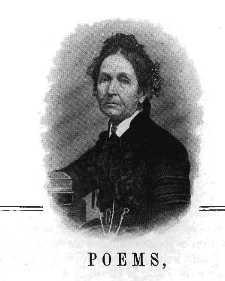Articles/Essays – Volume 04, No. 4
Mental Gas
Charles to his teacher—Sir, you say
That nature’s laws admit decay—
That changes never cease ;
And yet you say, no void or space ;
‘Tis only change of shape or place—
No loss, and no increase.
That space or vacuum, sir, explain—
When solid sense forsakes the brain,
Pray what supplies its place?
O, sir, I think I see it now—
When substance fails, you will allow
Air occupies the space.
Not so, my child,
that rule must fail;
For, by my philosophic scale,
The substitute for sense
Is lighter far than common air;
And with the most consummate care,
No chemic skill can dense.
But when misfortune turns the screw,
‘Tis oft compress’d from outward view
By outward force confin’d:
But with expansive power ’twill rise,
Destroy the man, increase his size,
And swell his optics blind.
Of various hues, yet still the same;
Though mental gas its chemic name,
Some Poets call it pride:
Th’ important aid this gas imparts
Among the various human arts
Can never be denied.
This gas, entire, may be obtain’d
From sculls whence sense is mostly drain’d,
Or never had supplies:
But were the noblest heads disclos’d,
From acts and motives decompos’d,
This mental gas would rise.
The parson’s lecture, lawyer’s plea,
Devoted sums of charity,
The sage with book profound;
The Muse’s pen, the churchman’s creed,
The mill-boy on his pacing steed,
Are more or less compound.


 Back to full Issue
Back to full Issue

